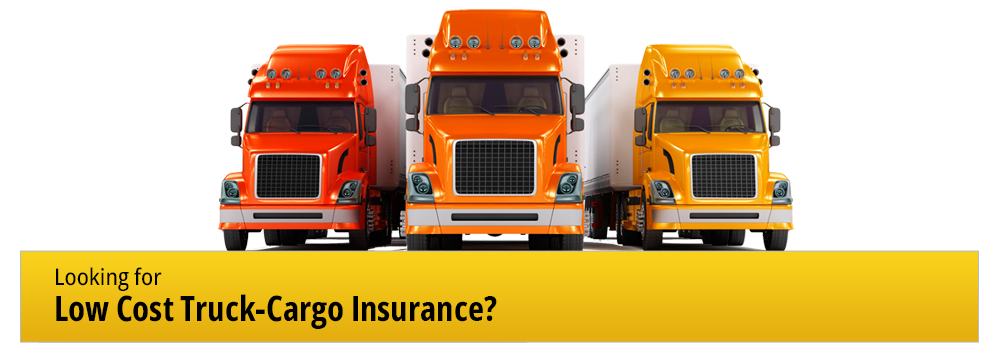
 Motor Truck Cargo Insurance
Motor Truck Cargo Insurance
What is Motor Truck Cargo Insurance?
Motor Truck Cargo Insurance is a type of insurance that specifically covers the cargo being transported by trucks. It provides financial protection in case the cargo becomes damaged, lost, or stolen during transit. This coverage is crucial for trucking companies, freight forwarders, and owner-operators who are responsible for transporting goods.
When businesses transport cargo, there are various risks involved, such as accidents, theft, or natural disasters. Motor Truck Cargo Insurance helps mitigate these risks by providing compensation for any losses incurred. This type of insurance allows businesses to operate with peace of mind, knowing that they are financially protected in case of any unforeseen events.
Motor Truck Cargo Insurance policies can be tailored to meet the specific needs and requirements of the business. They provide coverage for both domestic and international shipments, as well as different types of cargo like perishable goods or hazardous materials.
Overall, Motor Truck Cargo Insurance is essential for anyone involved in the transportation industry to protect their valuable cargo and ensure smooth business operations.
Why is Motor Truck Cargo Insurance important?
Motor Truck Cargo Insurance is essential for businesses involved in the transportation industry because it provides crucial financial protection for the goods being transported. Accidents, theft, and natural disasters can all pose significant risks to cargo during transit. Without proper insurance coverage, businesses may face devastating financial losses if their cargo becomes damaged, lost, or stolen.
Having Motor Truck Cargo Insurance ensures that businesses are protected and can continue operations even in case of unforeseen events. This insurance coverage helps minimize the financial impact of any potential losses, allowing companies to recover and replace the cargo without bearing the full burden of the costs.
Additionally, many customers and partners may require proof of Motor Truck Cargo Insurance before working with a trucking company. Having this insurance coverage can give businesses a competitive edge by instilling confidence in their ability to adequately protect and deliver goods.
Overall, Motor Truck Cargo Insurance is vital for any business involved in transporting cargo as it provides peace of mind, protects against financial losses, and helps meet industry requirements.
Types of coverage in Motor Truck Cargo Insurance
Motor Truck Cargo Insurance provides coverage for a wide range of risks and events that can occur during the transportation of goods. There are several types of coverage available in Motor Truck Cargo Insurance policies that businesses should consider when choosing their coverage.
One type of coverage is “All Risk” coverage, which offers protection for cargo against a variety of risks, including theft, damage, and accidents. This is the most comprehensive type of coverage and provides broad protection for cargo.
Another type of coverage is “Named Perils” coverage, which provides coverage for specific risks that are listed in the policy. This type of coverage is more limited than “All Risk” coverage but can be a more cost-effective option for businesses with lower-risk cargo.
It’s important to note that certain types of cargo may require specialized coverage. For example, perishable goods may require temperature-controlled cargo insurance to protect against spoilage or damage due to temperature fluctuations.
Businesses should carefully assess their specific cargo needs and choose the appropriate types of coverage within their Motor Truck Cargo Insurance policy to ensure adequate protection during transit.
Factors to consider when choosing a Motor Truck Cargo Insurance policy
When selecting a Motor Truck Cargo Insurance policy, there are several factors that businesses should take into consideration.
First and foremost, it is crucial to assess the specific needs of the cargo being transported. Considerations such as the type of goods, their value, and any special requirements (such as temperature control for perishable items) will help determine the appropriate coverage levels.
Another important factor to consider is the reputation and financial strength of the insurance provider. It is essential to choose a reliable and trustworthy insurer that has a track record of providing excellent service and promptly settling claims.
Additionally, businesses should carefully review the policy terms and conditions. Look for coverage limits, deductibles, and any exclusions that may affect cargo protection. Understanding these details will ensure that there are no surprises or gaps in coverage down the line.
Lastly, compare quotes from multiple insurance providers to find the most competitive rate without compromising on necessary coverage. Taking the time to evaluate these factors will help businesses choose a Motor Truck Cargo Insurance policy that adequately protects their cargo during transit.
Common exclusions in Motor Truck Cargo Insurance
Common exclusions in Motor Truck Cargo Insurance policies are important to understand, as they can impact the coverage provided. These exclusions typically involve circumstances or events that are not covered by the policy.
One common exclusion is for losses caused by inadequate packaging or improper loading of the cargo. If it is determined that these factors contributed to the loss, the insurance provider may deny the claim.
Another exclusion often found in Motor Truck Cargo Insurance policies is for losses caused by intentional acts or negligence on the part of the insured. If it can be shown that the insured acted recklessly or intentionally caused damage to the cargo, coverage may be denied.
Additionally, wear and tear, inherent vice (the natural deterioration of goods over time), and delays in transit are often excluded from coverage.
It’s essential for businesses to review these common exclusions carefully when choosing a Motor Truck Cargo Insurance policy. Understanding what is not covered will help ensure there are no surprises or gaps in coverage when filing a claim.
Claims process for Motor Truck Cargo Insurance
The claims process for Motor Truck Cargo Insurance typically involves several steps. First, the insured party must report the loss or damage to their insurance provider as soon as possible. This can usually be done by phone or online. The insured will need to provide details about the incident, including the nature and extent of the damage, a list of the goods affected, and any relevant supporting documentation.
Next, the insurance company will assess the claim and determine whether it falls within the coverage provided by the policy. They may request additional information or documentation to support the claim.
Once the claim is approved, the insurance provider will work with the insured to determine the value of compensation or reimbursement based on factors such as the market value of the damaged goods or cost of repair or replacement.
It is important for businesses to keep detailed records and documentation related to their cargo shipments, as these will be essential in filing a successful claim.
Tips for saving money on Motor Truck Cargo Insurance
Motor truck cargo insurance can be a significant expense for businesses, but there are ways to save money without compromising coverage. Here are some tips to consider:
- Shop around: Request quotes from multiple insurers to compare prices and coverage options. Don’t settle for the first offer you receive.
- Increase deductibles: Choosing a higher deductible can lower your premium. However, make sure it’s an amount your business can afford in case of a claim.
- Improve security measures: Implementing security features such as alarm systems and GPS tracking devices on your trucks can reduce the risk of theft or damage, leading to potential savings on premiums.
- Maintain a good claims history: By minimizing claims or demonstrating responsible claims management, you may qualify for discounted premiums or loyalty rewards.
- Bundle policies: If your business needs other types of insurance, consider bundling them with motor truck cargo insurance under one provider. This approach often leads to multi-policy discounts.
- Review coverage annually: As your business evolves, so do your insurance needs. Regularly revisit your policy with your insurer to ensure that you have the appropriate coverage at the best price possible.
Remember, while cost-saving is important, it is equally essential to maintain adequate coverage and protect your goods during transit.
